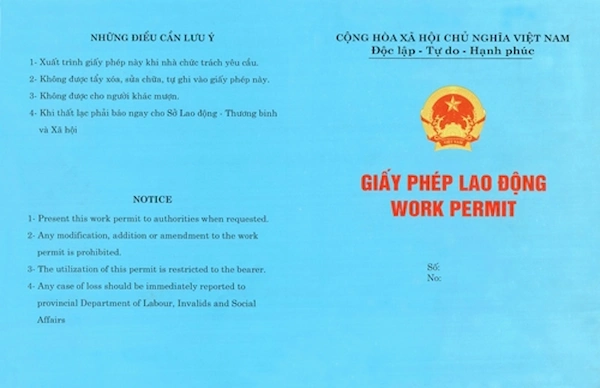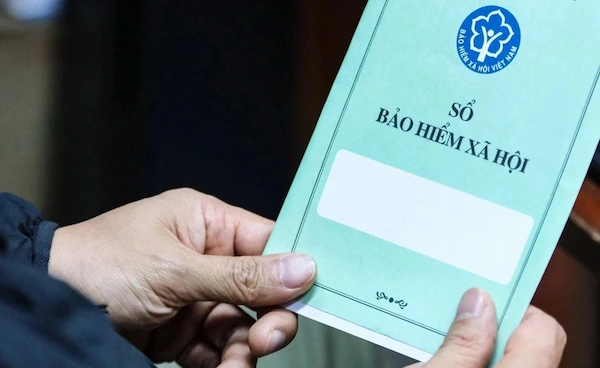Guide to Vietnamese Labour Laws for Foreign Workers

Are you a foreign worker considering employment in Vietnam? It’s crucial to understand the local labour laws to ensure a smooth and compliant experience. In this comprehensive guide, we’ll walk you through the key aspects of Vietnamese labour legislation that every foreign worker should know. From work permits to employment contracts, we’ve got you covered. Let’s dive in!
Work Permit Requirements

legal work.
To legally work in Vietnam, foreign employees must obtain a valid work permit. The Department of Labour, Invalids and Social Affairs issues work permits, which are typically valid for up to 2 years. To apply for a work permit, you’ll need to provide:
- Passport and visa
- Health certificate
- Criminal record
- Educational qualifications
- Work experience certificates
It’s important to note that certain occupations and industries may have additional requirements or exemptions. Consult with your employer or a legal professional to ensure you meet all the necessary criteria.
Employment Contracts

When hired by a Vietnamese company, you’ll be required to sign an employment contract. The Labour Code mandates that all employment contracts must be in writing and in Vietnamese. The contract should clearly outline:
- Job description and responsibilities
- Salary and payment schedule
- Working hours and overtime provisions
- Leave entitlements
- Termination conditions
Make sure to thoroughly review and understand the terms of your contract before signing. If necessary, seek the assistance of a translator or legal counsel to clarify any unclear clauses.
Working Hours and Overtime
In Vietnam, the standard workweek is 48 hours, typically spread over 6 days. Employees are entitled to at least one full day of rest per week. If you’re required to work overtime, keep in mind that:
- Overtime hours are limited to 30 hours per month
- Overtime pay is 150% of your regular wage for weekdays
- Overtime pay is 200% of your regular wage for weekends
- Overtime pay is 300% of your regular wage for public holidays
Your employer is responsible for tracking and compensating overtime hours in accordance with the law.
Leave Entitlements
As a foreign worker in Vietnam, you’re entitled to various types of leave:
| Leave Type | Entitlement |
| Annual Leave | 12-16 days, depending on years of service |
| Sick Leave | Paid at 75% of salary for up to 30 days |
| Maternity Leave | 6 months, with full salary for prenatal checks |
| Paternity Leave | 5-14 days, depending on the type of birth |
Your employment contract should specify the exact leave provisions applicable to your position. Don’t hesitate to discuss any questions or concerns with your employer or HR department.
Social Insurance and Benefits

Vietnam has a comprehensive social insurance system that covers healthcare, pension, and unemployment benefits. As a foreign worker, you’re required to contribute 8% of your monthly salary to the social insurance fund, while your employer contributes 17.5%.
These contributions entitle you to:
- Free medical treatment at public hospitals
- Monthly pension payments upon retirement
- Unemployment benefits if you lose your job
It’s essential to ensure that your employer is making the necessary social insurance contributions on your behalf. You can check your social insurance status and contributions online through the Vietnam Social Security website.
Taxation
As a foreign worker in Vietnam, you’re subject to personal income tax (PIT) on your earnings. The tax rate is progressive and depends on your income level:
| Annual Taxable Income (VND) | Tax Rate |
| Up to 60 million | 5% |
| 60 – 120 million | 10% |
| 120 – 216 million | 15% |
| 216 – 384 million | 20% |
| 384 – 624 million | 25% |
| 624 – 960 million | 30% |
| Over 960 million | 35% |
Your employer is responsible for withholding PIT from your salary and remitting it to the tax authorities on your behalf. Make sure to provide your employer with your tax identification number (TIN) and any applicable deductions or exemptions.
Dispute Resolution
In the event of a labour dispute with your employer, Vietnam has a multi-step dispute resolution process:
- Mediation: A labour mediator, appointed by the company’s trade union, will attempt to resolve the issue through dialogue and negotiation.
- Arbitration: If mediation fails, the dispute can be referred to an arbitration council, which has the power to make binding decisions on reinstatement or compensation.
- Litigation: If either party is unsatisfied with the arbitration decision, they can file a lawsuit in court for a final resolution.
It’s important to document any labour disputes thoroughly and seek legal advice if necessary to protect your rights and interests.
Conclusion
Navigating the world of Vietnamese labour laws may seem daunting, but with the right information and guidance, you can ensure a successful and compliant employment experience. Remember to:
- Obtain a valid work permit
- Carefully review your employment contract
- Understand your leave entitlements and social insurance benefits
- Comply with tax obligations
- Know your rights in case of a labour dispute
For personalized assistance with your specific situation, don’t hesitate to reach out to Jobinvietnam.net, a leading specialist in the construction of tempered glass roofs. Their knowledgeable team is ready to provide clear and detailed advice tailored to your needs. Contact them today via phone or Zalo to take the first step towards a rewarding career in Vietnam!

